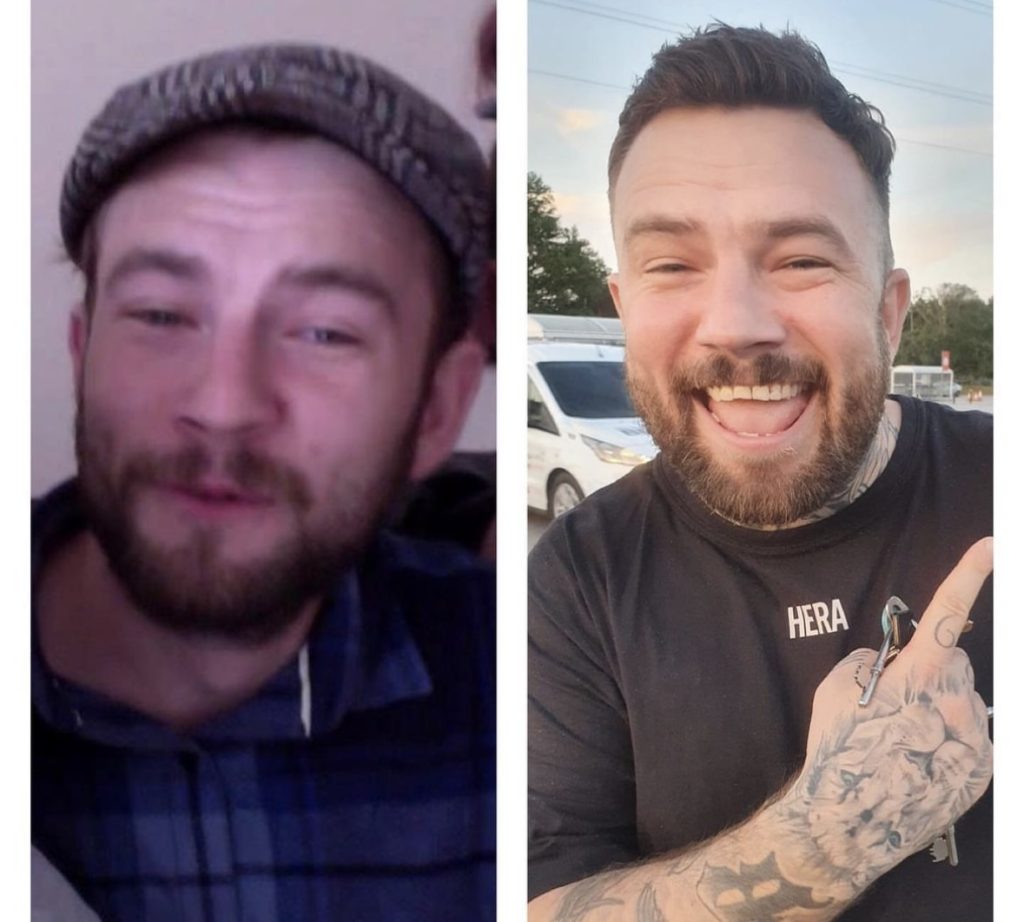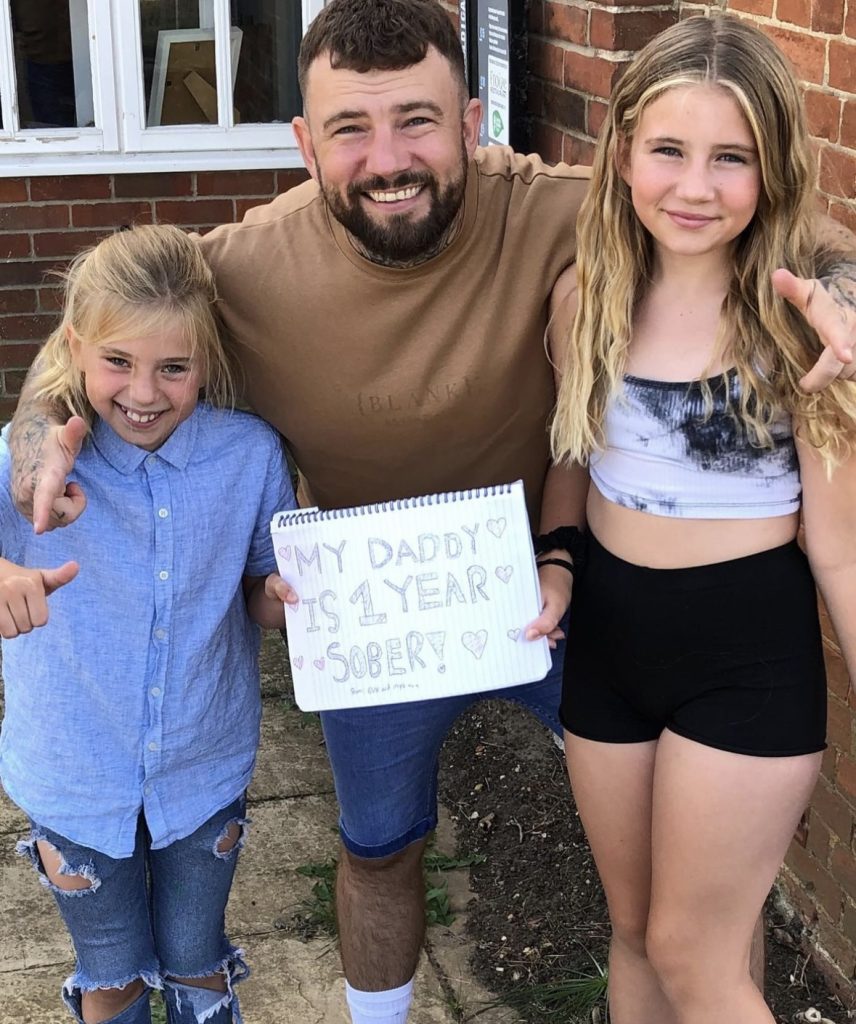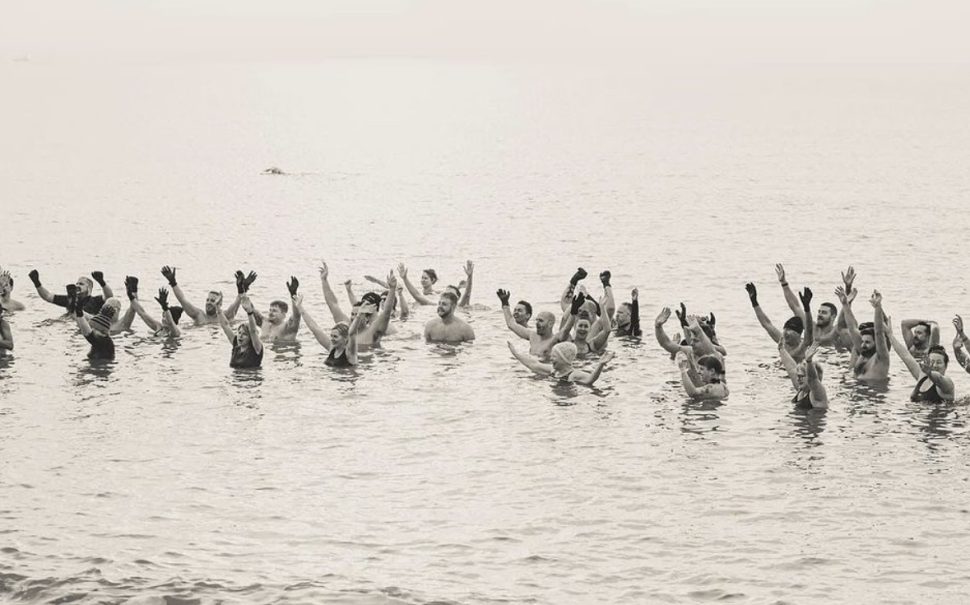£267 million is said to boost local drug and alcohol treatment, in April 2024.
The Department of Health and Social Care and Neil O’Brien MP have said that every local authority across England will be allocated additional funding to help combat drug and alcohol misuse.
Sam Phillips, 37, from Suffolk is a successful recovering addict who has been sober for 27 months.
“This is the best I’ve ever felt in my life I’ve not even considered having a drink or drug in these 27 months,” Sam said about his ongoing journey.
Sam suffered from major health anxiety as a teenager going through school. He would analyze growing pains and always had pains in his chest thinking it was a heart attack.
At an early age, he started self-medicating with alcohol and then later on in life ended up getting into cocaine. It started as binge drinking for years then resulted in full addiction.
Sam realised something when a good friend who had been sober for around six years got in contact.
“He was trying to ring and call me through the pandemic when I relapsed but I was not ready to see or speak to him. I was in self-pity mode.
“Then I bumped into him coming back off a binge and trying to avoid him I hid in a shop, but he sat in his car waiting for me.
“He walked me around a church for about 20 minutes and told me about the fellowships AA and CA. He then took me to a meeting the next day.
“I haven’t picked up a drink or drug ever since.”
Health Minister Neil O’Brien said: “Drug addiction drives about half of all crimes, so by investing in high quality and greater availability of treatment we can reduce crime rates and save lives.
“We aim to raise the number of people getting drug and alcohol treatment to a record high by investing through the long-term investment we’ve been making over the last three years.”
This investment should have clear links to support the plans from Combating Drugs Partnerships on how it will reduce drug-related crime, including improving access and taking up quality treatment for those dependent on opiates and crack cocaine.
Sam said: “I had suicidal thoughts. I’ve got so many twists and turns to my story but I lost everything once. My house, my family all my money.

“I got sober for a while and got it all back but then I relapsed and lost everything again so I had to start from scratch. I just didn’t have the energy to do it, I put a massive burden on my family and it led me to suicidal thoughts.
“I was thinking people would be better off without me.
“Which is crazy to me thinking about that now. It took me to a dark place and that’s why the cold water therapy helps.”
Sam began cold water therapy once the doctors told him that his blood was producing too many red blood cells and not enough white due to the abuse to his body.
“It could have led to a blood clot and killed me.”
“That’s when I was having suicidal thoughts, I expected my fate and thought ‘well it’s too late for me.’
“But I have two little girls, I couldn’t leave them without a dad, so I needed to dig down deep and give it one last go not only for myself but for them.
“I looked online and saw that cold water therapy is a natural way to get rid of anxiety and depression so I set myself a goal of doing 30 days straight of cold showers, and I noticed a real boost in my mood.”
“I was walking with my cousin along the prom and I said there’s something to this cold water stuff and I know other people will be struggling in the pandemic.”
So Sam set himself a challenge of going into cold water every day for a year in true addict style.
“Day one my mum, sister, and nephew came down to watch me. Day two a bloke in my town who had had a car crash and was in a bad place came down and joined.
“Day three there were three or four people and it just grew and grew.
“During the whole year over 400 + people in my community came and got involved.”
Sam was nominated for the Pride of Britain Award due to all his hard work raising awareness for recovery.
Czech researchers found that cold water plunging can increase blood concentrations of dopamine — another so-called happy hormone made in the brain — by 250%. This is the same amount of dopamine as a portion of cocaine does to the brain.
“I believe I’m an addict because I have low dopamine levels in my brain so I always need more, with drink and drugs you get the crash and chase for more that’s why you become an addict. With the cold water, it releases slowly throughout the day, in healthy amounts. It’s also a lot cheaper than cocaine is.”
When talking about the effect that his addiction had taken on those around him Sam spoke about his daughters.
He said: “It’s brought me so much closer to them because I’ve learned so much in the past 27 months about the disease of addiction.

“I split with the girl’s mother so I would only have their weekends and Wednesdays evenings, the days I wasn’t with them I was just feeling sorry for myself and smashing myself to bits.
“I’ve always been present in their lives but truly I wasn’t present because even though I wasn’t drinking/taking drugs when I had them, my mind was on it.
“The best thing that recovery has given me is time back with them. I make memories instead of forgetting them.
“I try and be a voice for other people now.
“For years and years I was just too stubborn and had too much of an ego as I was trying to do it alone.
“Them years of trying to be sober from before were hell, it was just as bad as being an active addict because I wasn’t opening up and talking to anyone.”
From Harm to Hope is a 10-year plan to cut crime and save lives by reducing the supply and demand for drugs and delivering a high-quality treatment and recovery system that was published in December 2021.
Over the first three years of the strategy, the additional investment in treatment and recovery will help prevent nearly 1,000 drug-related deaths – reversing the upward trend in drug deaths for the first time in a decade.
The strategy also sets out that illegal drug use such as heroin and crack addiction is connected to half of all homicides, and nearly half of all burglaries, robberies, and other acquisitive crimes.
Office for National Statistics data released August 2022 showed 4,859 drug-related deaths registered in 2021 in England and Wales, a 6.2 percent increase from 2020.
Deaths involving drugs controlled under the Misuse of Drugs Act 1971 are now 3.5 times higher than the number of deaths registered when records began in 1993.
2022 was so far the year with the highest number of registered drug-related deaths since records began.
Sam said: “I would say to the old me to go and open up to your family and other people on the same journey a lot quicker.
“As soon as I just put the cards on the table and said ‘this is what’s wrong with me’, well that’s when things started to improve and I started to grow.
“Don’t do this on your own! Because you can’t!”
https://linktr.ee/samwphillips – Sam’s social media pages.
https://www.gov.uk/government/news/267-million-to-boost-local-drug-and-alcohol-treatment





